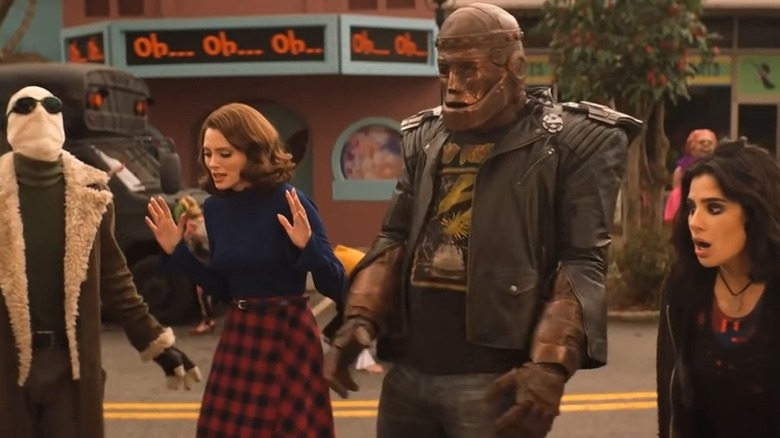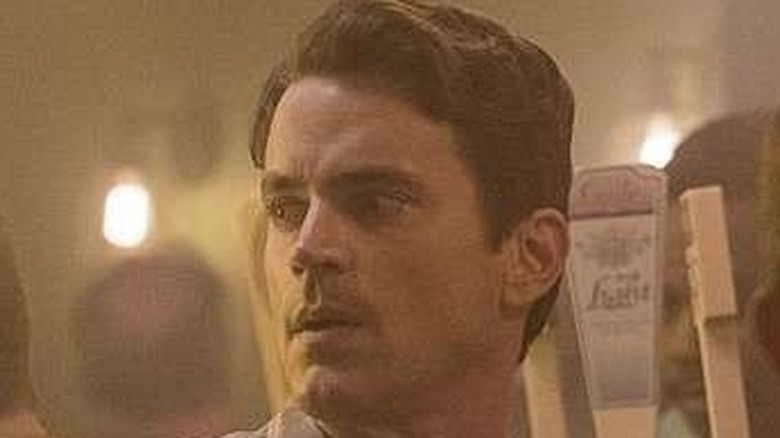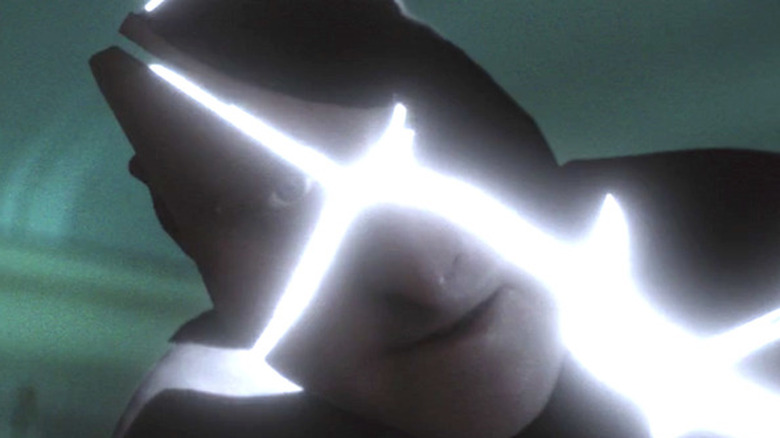Why You Shouldn't Call Doom Patrol A 'Superhero Show'
In the vast library of HBO Max series and adaptations, there are few that match the wit, heart, and weirdness of "Doom Patrol." After finding life for its third season on HBO Max following the brief stint of the DC Universe subscription service, "Doom Patrol" followed up its first two seasons with the third season that upped the ante in both story and amount of were-butts. However, what differentiates "Doom Patrol" from any Marvel show on Disney+ or even its peers on HBO Max, like "Titans" or "Peacemaker," is its indifference to a larger universe or the typical tropes one would expect from a "superhero show." Something showrunner Jeremy Carver himself said in an interview with Nerdist. Instead, the focus on Doom Patrol is all about character.
I very rarely describe it as a superhero show. That's not ultimately what turns me on about working on it. We have a team of writers, actors and artists working who all sort of come at it from that same approach. It's character first.
Characters that serve a purpose
"Doom Patrol's" approach of "character first" has led the show to emotionally hefty moments that help elevate it above other comic book adaptations. Rather than looking toward comic book accuracy or hoping to tease a crossover, "Doom Patrol" instead uses its characters to be a reflection of people who are different and their journey to self-acceptance. Look no further than Larry Trainor/Negative Man (Voiced by Matt Bomer and portrayed physically by Matthew Zuk). Who, according to Carver in an interview with EW, used Trainor's story to make a greater statement:
That was especially interesting to me when you put it in the context of an Air Force pilot who is secretly gay, because through the course of the season we actually are tracking sort of what it was to be a gay man through the decades. That was very deliberate on our behalf. We were absolutely trying to make a statement as much about America as we were making a superhero story. It was an opportunity to add another layer to the show.
Negative Man is just one of many examples of characters in "Doom Patrol" whose characters serve a greater purpose than comic accuracy or connections to another IP. However, "Doom Patrol's" departure from the expected norms of the genre is also owed to the lesser-known comic that it comes from.
Villains have feelings too
The opportunity to spotlight obscure-beyond-D-List characters is another aspect that makes "Doom Patrol" so special. When speaking to Collider about writing Season 2, Carver had this to say about the deep cuts of "Doom Patrol":
That's what's made Doom Patrol, the comics, so much fun over the years. The fact that we can do some deep pulls and bring to life these lesser-known villains in the DC Universe, much like Doom Patrol was a lesser-known part of the DC Universe, it's a lot of fun. Even the least amongst us has feelings and emotions and villainous plans, and it's a lot of fun to be able to spotlight that.
Carver, as showrunner, has an incredible understanding of an audience's need for compelling characters. Whether that character is true to their comic appearance or behavior comes second to the writer's room of "Doom Patrol." Instead, the focus is on creating a compelling character that resonates with the viewer. Their trauma, acceptance of themselves, and their relationship with others are what is at the forefront of "Doom Patrol" and why you shouldn't just call it a "superhero show."
With the first three seasons streaming on HBO Max and a fourth season on the way, Doom Patrol is sure to bring more of what made it work from the beginning with its incredible character work.


